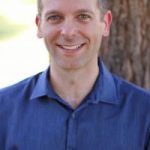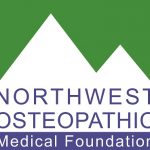Last week we talked about living life in a wheelchair, and how very difficult that is to accomplish. My hat is off to the warriors among us who manage this lifestyle on a daily basis.
This week, we welcome a first time blogger, Dr. David Ross. He will share with us his insights for maintaining our mental health. David Ross is a bivocational minister and healthcare administrator who grew up in and currently resides in the Pacific Northwest with his wife. He obtained both a Doctor of Psychology in Clinical Psychology and a Master of Divinity in Christian Apologetics. Dr. Ross continues to joyfully use the education, experience, and skills that God has given him to serve his community and his local church The Gathering Place in Vancouver, Washington. Having worked with thousands of patients in clinical practice Dr. Ross has invested his life in helping others to make choices that will honor themselves, others, and God. He can be reached via his website at solutions4hope.com.

By David Ross
If I could share with you one thing that could dramatically improve your life, not your financial holdings, but your actual life; and by life, I mean how you perceive yourself, how you perceive others, and how you experience each day; the secret to bringing joy into your world. What if I were to tell you that you can have this one thing and although it is not without cost it can be obtained by anyone who is willing to have it.
I hope I have raised your curiosity at this point. After decades of personal experience working with people I have come to realize that the ability to forgive is paramount to living a joy filled life. Forgiveness can be exercised by anyone, hence anyone can implement forgiveness in their lives. However, it is not without cost as it will require abandoning the role of victim that many of us have become familiar with while enduring the challenging task of processing difficult and strong emotions tied to the event in which we were wronged or where we wronged another.
Now for the skeptics, I’m not the only person who has reached this conclusion. Many researchers have come to this conclusion and books have even been written on the topic. One such book is by Dr. Fred Luskin Forgive for Good. Now of course the importance of forgiveness has been known in theological circles for thousands of years as even Jesus called his followers to forgive just as they had been forgiven. But forgiveness takes on a new significance if we are desiring to maintain our own mental health.
We all have engaged in conduct that has hurt others at some point, and we all have been hurt by others as well. Unless you grew up in isolation from other people you will have your own stories of how others wronged you at some point or another. These memories, if left unattended, tend to have the consequence of shaping our thinking and feeling over time. For the person whose house was burglarized they may come to find trusting others difficult, always expecting that others will take advantage of them when the opportunity arises. Others have been physically or sexually assaulted and carry with them the fears of future assaults. These stored up emotions continue to have impact on our lives in the form of mental distress long after the event has come and gone.
Lastly, the emotional impact of unforgiveness tends to result in two emotions: anger and guilt. Anger results when we feel that others have harmed us while guilt tends to be the byproduct of our own wrong doing against others. A person who fails to forgive will often be filled with anger and/or guilt which will permeate all of their experience and relationships. Perhaps you are now beginning to see why failing to forgive is such a powerful predictor of mental distress whether it is depressed mood, feelings of anxiety, fearfulness of others, or strained interpersonal relationships. These negative life experiences often are the direct result of failing to forgive those who have harmed you or your carrying the guilt of having harmed others.
As we move towards a greater focus on working to improve mental health individually, we will also have to recognize that how we behave personally affects not just our own lives but has an impact on how our country operates as well. Will the United States become a place known for its anger and lack of forgiveness towards others? Will we continue to hold things a person may or may not have done against them regardless of how long ago the alleged transgression occurred? Or will we recognize that the only path towards healing our great country is to begin to work towards forgiveness for all people. Whether in politics or our criminal justice system we struggle as a country with the concept of forgiveness. Thus, we should not be surprised that the lack of forgiveness we experience in society reflects upon our own psyches compounding our own personal struggles with choosing forgiveness.
One thing is certain, if we want to begin to free ourselves from the suffering which results from mental illness and mental distress we must embrace the concept of forgiveness. Then we must begin to actively work to make forgiveness a choice that we will make every day. When you choose to forgive you find that you have opened the door to the miserable cell that had contained you – and most empowering is the realization that all along you have held the key! Your life will take on a new lightness as you let go of the anger that you have carried against others for so long. Your desire to condemn others will also dissipate as you hear that small voice whispering, let he who is without sin cast the first stone.
I recognize that choosing to forgive is a difficult task. Yet, like all of life teaches us, the greatest gains come from the greatest struggles. May you find new life in forgiveness, the forgiveness offered by our Creator, the forgiveness we can choose to extend to all the other people we interact with in life.

For more information about NWOMF see their website at www.nwosteo.org, or David Tate, Executive Director at tate@nwosteo.org or Linda Tate, Communications Director at linda@nwosteo.org, or call 503.263.7878
// The Northwest Osteopathic Medical Foundation is a public charity committed to Advancing Wellness through the Osteopathic Approach. As a charity, we do not represent any medical school, medical association, medical practice, or individual physician.
This blog should not be considered to be medical advice. Your personal health is best discussed one-on-one with your personal physician. Rather, this blog is intended to highlight the distinctive philosophy and practice of osteopathic medicine as expressed by the author and does not necessarily represent the opinion of the Northwest Osteopathic Medical Foundation, or other Osteopathic physicians. The information and opinions are solely those of the author.


